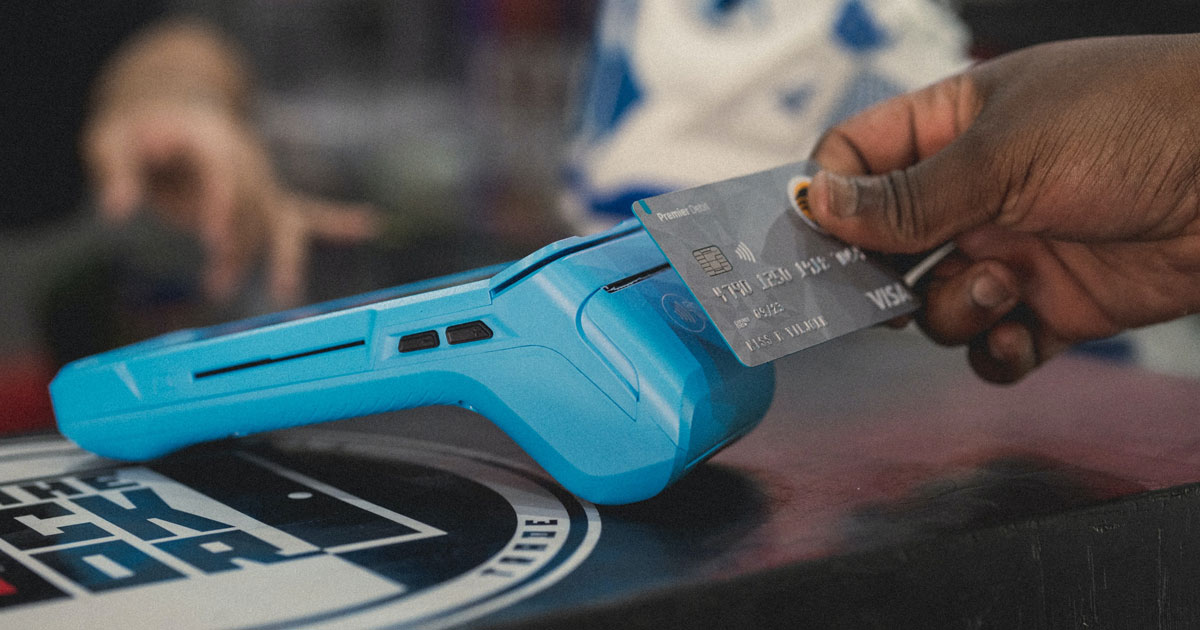Credit card machines can help make sales more easily while providing customers with greater convenience, but it is essential that all potential costs be considered prior to committing to one purchase.
While your initial purchase may be the highest cost, additional expenses such as transaction fees and PCI compliance could add up over time.

Cost of hardware
Credit card machines vary in price depending on their model and features. Some offer Europay, Mastercard and Visa (EMV) technology for increased security; others have near-field communication (NFC). Prices also depend on whether or not you need mobile terminal with Wi-Fi/data package connection or an all-in-one machine; typically vendors charge set-up and monthly service charges but some may waive these for new customers.
Credit card machines typically range in cost from under $100 to over $1,000 in hardware costs, with countertop or portable terminals often serving as the go-to choice. They feature magnetic stripe readers, PIN pads, display screens, receipt printers and sometimes built-in software capable of sending digital receipts via email or SMS messages as the most common types.
There is equipment that provides customers with a more seamless checkout experience, including integrated point-of-sale (POS) systems and contactless payment readers that enable shoppers to pay with their mobile phones. Some providers even provide virtual terminals so you can process sales remotely on either desktops or phones. While these tools may make processing sales more efficient, you should still carefully consider any long-term costs of leasing credit card terminals.
Cost of software
If your business accepts payments using cards, a card payment machine is essential. This could include standalone credit card readers, portable card machines or full-featured checkout terminals with monitors or tablets and cash registers connected to card machines and virtual terminals that support card-not-present transactions (allowing customers to key in card details online or over the phone for card-not-present transactions) that connect to your processing provider via Ethernet, WiFi or cellular data connections.
Credit card payments are an integral component of most businesses, and having the proper point-of-sale (POS) equipment can help increase profits and enhance customer experiences. But it takes more than hardware alone – merchant services providers offer differing price structures and work with various card machines.
Start by searching for a processor with seller protection and excellent customer support, as this can help minimize chargebacks or claims against your business. Furthermore, many credit card processors cater to high-risk applicants such as those with no or poor credit. In addition, always double-check whether the credit card payment machine features secure connectivity to avoid security breaches. A tool like Disputifier can be a worthwhile investment, offering robust analytics and automated dispute resolution services that can save significant time and money in the long run.
Cost of monthly service
Credit card machines like any POS equipment come with various fees and rates associated with them, which allow processors to maximize profits. Fees associated with credit card machines vary, from transactional charges (based on a percentage of sale price) or flat fees per swipe to fees set by credit card networks that vary based on which card type was used, such as interchange fees.
Fees charged for various services may include assessing risk, protecting against fraud and maintaining a level of security, as well as offsetting costs related to other services like recurring billing, recurring payments or mobile payment solutions. Some fees may require an annual service contract agreement before being charged.
Some companies provide their own credit card machines while others utilize third-party hardware. Certain machines include integrated POS software that can increase efficiency and decrease downtime; alternatively, you may choose one compatible with your current POS system; in addition, some credit card readers feature EMV technology which offers a safer means of processing payments.
Costs associated with credit card machines depend on their features and functionalities. Some can be portable and plugged into any power outlet; others boast more advanced technology like built-in receipt printers or wireless networking capabilities. When purchasing card readers of any sort, be sure to do your research first before making your final decision.
Cost of compliance
Credit card processing is a necessity for most businesses, yet equipment costs can range widely depending on its use. Hardware alone could cost anywhere from $200-$1,000 while additional fees could add up quickly; it is crucial that businesses understand these associated fees prior to making their decision on purchasing equipment.
Fees that small businesses face often include transaction, batch and PCI compliance charges – fees which can quickly accumulate. To minimize them, seek a payment processor with Interchange-Plus Pricing which takes into account both non-negotiable interchange fees as well as merchant services provider markup to provide you with an optimal price per swipe.
Not only are the fees listed here high, but there may also be hidden costs that add up. Some providers charge setup or monthly wireless fees and many payment processors require contracts and early cancellation fees – it is wise to read contracts carefully and understand their nuances before signing them.
Setting a minimum purchase amount is another effective way of lowering credit card processing costs and will protect your business from incurring excessive fees for purchases under $20, however this option may not be available in all states. It may also allow your business to pass along these costs directly to its customers but this practice may be illegal in certain states.
